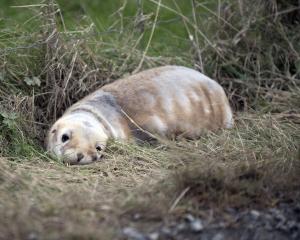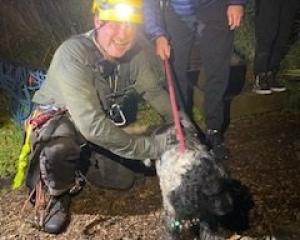A travel advisory for Indonesia already contains a warning about the Balinese spirit, but that may be updated after the release this week of Otago-Southland coroner David Crerar's findings on the death of Michael Denton in Bali in September last year.
Mr Crerar conducted the inquest after Mr Denton's body was returned to New Zealand from Indonesia.
Mr Denton (30) died in Bali in his hotel room several hours after complaining of feeling unwell after having a drink at a Kuta bar.
He was in Bali with his rugby team for a tournament.
Pathology, toxicology and autopsy reports done in Indonesia formed part of Mr Crerar's evidence, as did a toxicology and autopsy report completed in New Zealand and an internet download detailing the content of, and possible side effects of, arak.
Mr Crerar's report said the Bali pathologist concluded Mr Denton died when he suffocated on his stomach's contents, but also mentioned some evidence that could be attributed to methanol intoxication.
Mr Crerar said his own inquiry was compromised by the inability of New Zealand police to obtain direct, first-person statements and by the inability of Environmental Science and Research (ESR) New Zealand and pathologists to obtain appropriate samples and other information needed for them to come to a definitive conclusion as to cause of death.
ESR forensic toxicologist Helen Poulson told him the Indonesian toxicology report, which detailed high levels of methanol and ethanol in Mr Denton's system, contained several inconsistencies which made the results difficult to interpret.
It was also unclear how much of the methanol and ethanol detected by New Zealand scientists in Mr Denton's body was due to the use of embalming fluid, in which both were used, to preserve his body for its return to New Zealand.
Mr Crerar said he was advised Mr Denton had not consumed a significant amount of alcohol because he had to play rugby the following day.
The evidence was Mr Denton had been drinking arak, but his drinking that night was only moderate and he returned alone to his hotel.
However, if he was in the state of intoxication suggested by the Indonesian toxicology report, he would not have been able to manage that on his own, Mr Crerar said.
Notwithstanding the evidential difficulties, the coroner was satisfied the extremely high levels of methanol and ethanol in Mr Denton's body were more likely to have been created by the preservation processes than by digestion.
He was, however, persuaded the arak said to have been consumed by Mr Denton that night was so contaminated by methanol that the overall central effects of alcohol and its component ethanol were exacerbated.
This caused Mr Denton to vomit and inhale his stomach's contents.
Pathologists also reported fluid accumulation and severe congestion of the lungs.
Mr Crerar recommended the Ministry of Foreign Affairs and Trade publicise the dangers of arak, that it was known to contain or be contaminated by methanol, and that the effects of drinking methanol could be fatal.
A month after Mr Denton died, a warning about arak appeared on the ministry's travel website warning contaminated arak could induce "severe illness".
A spokeswoman said yesterday the warning would be reviewed once a copy of the coroner's report was received.
Attempts to contact the Denton family last night were unsuccessful.












